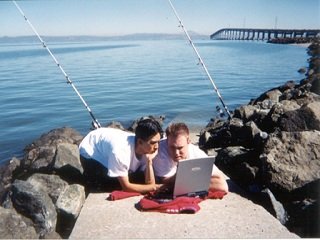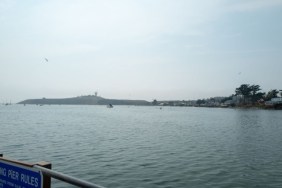 I’ve known many fishermen who repeatedly fish a particular body of water and, for some reason, fail to catch fish in their favorite spots throughout the season. This isn’t because they’re bad fishermen; they simply don’t keep track of what works and what doesn’t. Serious anglers know the benefits of keeping a log of their fishing activities, especially when fishing on the same lakes many times during the season. If you’ve found yourself scratching your head when the fish won’t bite in your favorite spot on your favorite lake, then it may be time to start a log of your own.
I’ve known many fishermen who repeatedly fish a particular body of water and, for some reason, fail to catch fish in their favorite spots throughout the season. This isn’t because they’re bad fishermen; they simply don’t keep track of what works and what doesn’t. Serious anglers know the benefits of keeping a log of their fishing activities, especially when fishing on the same lakes many times during the season. If you’ve found yourself scratching your head when the fish won’t bite in your favorite spot on your favorite lake, then it may be time to start a log of your own.
The main purpose of a fishing log is to keep a record of a variety of conditions when each fish is caught. The log can include as much information as you see fit, but the more factors you keep track of, the more data you’ll have to refer back to in the future. Examples of such factors include, but are not limited to, the following: species, date, body of water, weather conditions (temperature, cloud cover, season, wind direction etc.), time that fish was caught, size of the fish, water conditions (temperature, clarity, structure, cover, etc.), technique, and lure used.
Odds are that any day you’re on the water is similar to a particular day from the past. This is where a fishing log comes in handy. By matching up the current conditions on a body of water to patterns and factors from an earlier time, you can get a better idea of what’s worked before and therefore know what to do in the current situation. For instance, if you caught a largemouth on a chartreuse spinner in a certain spot when the water temperature was 65 degrees, at a certain depth, then you should try the same tactic if your current conditions are similar.
The easiest way to keep a log, in my opinion, is the use of a spreadsheet on your computer. It can be difficult, however, to take a laptop on the boat. My suggestion is to take a notebook with you and jot down the information in it as the day progresses, then tuck the log into a boat compartment, or tackle box.
When it comes to keeping a log, be sure to be as specific as you can when keeping a log, and try to record any small piece of data you can. Not only will the patterns you discover help you keep track of what works, but they’ll also help you prepare for your next trip. Be sure to check the weather forecast for your trip and match up the predictions with patterns from your log. Not only will this reduce preparation time, but your seemingly “psychic” tackle decisions will have your friends calling you the “Fish Whisperer” by the end of the day.








